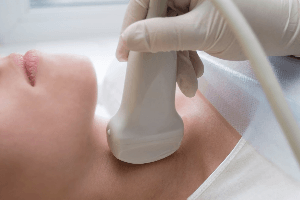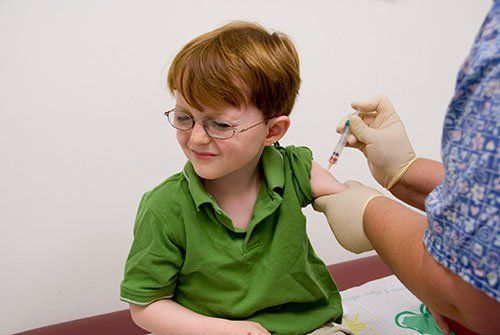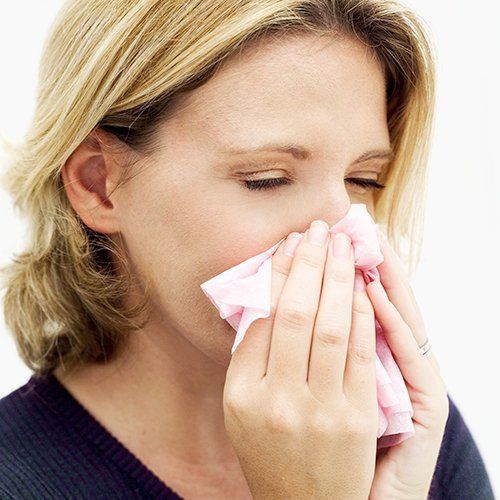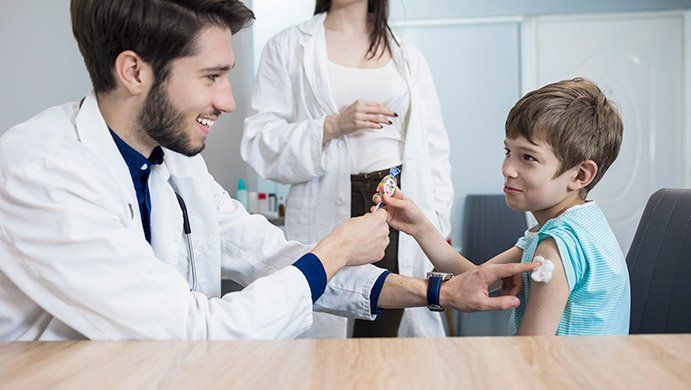3 TIP TO TOE HYGIENE TIPS FOR YOUR NEW BABY
Admin • August 5, 2021

A baby's growing body often baffles first-time parents. Why is your baby's scalp peeling? Should you worry about the vivid rash on the back of your baby's neck? How frequently do you need to bathe your brand-new baby?
Below, we'll assuage some of your worries with a tip to toe rundown on your newborn's hygiene. By the time you finish reading, you'll better understand how to care for your newborn and when to call a doctor for assistance.
1. Gently Rinse Hair and Scalp
New babies are prone to a condition called cradle cap, which looks like dandruff and may make you think you don't scrub your baby's scalp frequently or hard enough at bath time.
However, cradle cap isn't dangerous and usually resolves on its own. Don't try to scrub the flakes of skin out of your baby's hair or off his or her scalp - doing so irritates the area. Instead, give the baby a bath every three to five days, and take extra care with his or her hair.
You can wash your baby's hair even if the umbilical cord hasn't fallen off and you're still giving sponge baths. To do so, hold the head back, keep a firm grip on the neck, and dribble warm water across the scalp, being careful of your baby's eyes.
Using either your palm or a pre-washed baby washcloth, gently massage scent-free baby shampoo into your child's hair or across his or her scalp, and then rinse with warm water.
2. Pay Attention to Eyes, Ears, and Noses
Just as with adults, babies' eyes, ears, and noses are prone to accumulate gunk. Unlike adults, babies can't deal with these areas of the body themselves. However, keeping these body parts clean for your baby isn't too challenging:
- Eyes: At bath time or bedtime, sweep a damp washcloth just beneath the eye from the inner corner to the outer. Don't use soap, which can irritate your baby's eyes. Use a different corner of the washcloth to clean each eye to prevent cross contamination.
- Ears: Use a damp washcloth to gently clean the outside of your baby's ears, paying special attention to any spit-up that may have dribbled into the ear. Never use a Q-tip to clean the inside of a baby's ear. Simply wait for any earwax to push itself out and remove it with a fingertip or washcloth once it's visible.
- Nose: Use a bulb syringe to remove mucus from your baby's nose. Gently insert the bulb's tip into your baby's nostril to suction out accumulated mucus. Sanitize the bulb after use.
3. Trim Nails as Needed
Babies' fingernails can be incredibly sharp, which isn't just a problem for a new parent trying to feed their child without getting clawed. Those sharp fingernails are also dangerous for the baby, who can scratch their face or even their eye, causing an infection.
Trim your baby's nails a few times a week using baby nail clippers, not adult nail clippers. Don't trim too close to the quick, but do cut straight across and low enough that your baby's nails are no longer sharp. Toenails grow more slowly than fingernails, but make sure to trim them the same way around once a week.
Concerned? Visit a Doctor
Following the three tips above can help your baby stay healthy and happy. However, along with typical newborn visits, you should take your baby to the doctor if you have any concerns about your child's health. Live in Hampstead? Schedule an appointment with Hampstead Medical Center PC. Our doctor is happy to help new parents navigate newborn care.

The IUD, or intrauterine device, is one of the most effective methods of birth control available. Unlike birth-control pills, you do not need to remember daily to administer medication, and the device itself lasts longer than shots and is easier to use than rings. Many women find all of these benefits desirable for a birth-control method. There are two general types of IUDs available to women. The first type is the copper IUD, and the other is hormonal. Which one is right for your personal birth-control needs?

Although the risk of cardiovascular disease increases as you get older, many people who die suddenly of a heart attack didn't previously know they had heart disease. That's why identifying risk factors for heart attack and stroke is so critical to cardiovascular health. Fortunately, with regular exams and the many types of screening tests available, doctors can detect early signs of heart disease.

Even if you've never had cause to doubt your thyroid function, if you're a female who has recently given birth, you may be at risk for thyroid issues. An estimated 12 percent of Americans deal with thyroid trouble at some point during their adult lives, and women are significantly more likely than men to develop a thyroid-related ailment. Unfortunately for new mothers, many of the most common signs of an underactive thyroid (like weight gain, mood swings, fatigue, and irritability) are also quite common for those dealing with a newborn's frequent night wakings and the realities of a post-partum body. Read on to learn more about some common (and not-so-common) signs that you could be dealing with a pregnancy-induced thyroid problem as well as some treatment options that can be safely administered or performed while you're breastfeeding. What Can Cause Thyroid Problems During Pregnancy? As with many other hormonal disorders, there are often more questions than answers when it comes to thyroid function. However, researchers have pinpointed a few factors and health conditions that can raise the risk of a woman’s developing a thyroid issue during or immediately after pregnancy. For example, while only around 7 percent of women are at a general risk of developing postpartum thyroiditis, this risk increases to 25 percent for women who have Type 1 diabetes or who dealt with elevated antithyroid antibodies during pregnancy. Women whose anti-peroxidase (anti-TPO) antibodies were elevated during pregnancy may have a 1 in 2 chance of developing postpartum thyroiditis, and those who have dealt with thyroid issues in the past (or during previous pregnancies) also deal with a significantly increased risk. In other cases, thyroid problems may have no cause that can easily be pinpointed; the rush of various hormones during pregnancy and the strain they can put on various systems, including the endocrine system, can create a sort of "perfect storm" in which thyroid problems may thrive. What Are Some Signs You're Dealing With Post-Pregnancy Thyroid Issues? Thyroid problems can take a number of forms, including hypothyroidism (an underactive thyroid), hyperthyroidism (an overactive thyroid), Graves' disease (an autoimmune condition that causes goiter), or Hashimoto's disease (an autoimmune condition in which the body's immune system attacks healthy thyroid cells, eventually stopping all thyroid function). The signs and symptoms for each thyroid disorder are unique and often at opposite sides of the spectrum. For example, hypothyroid patients often report being cold, having dry skin, sleeping more than normal, or gaining weight without trying while hyperthyroid patients sweat profusely, suffer from insomnia, and can lose a significant amount of weight in a brief period. Postpartum thyroiditis often manifests as either an underactive or overactive thyroid, which usually normalizes itself in a few months. Symptoms lasting longer than that or that appear to be getting worse may necessitate medical intervention. What Treatment Options for an Underactive Thyroid Are Best for New Mothers? Whether you suspect you have postpartum thyroiditis or have been formally diagnosed, you may be worried about how your potential treatment options could impact your ability to breastfeed and what effect (if any) they might have on your child. Fortunately, there are a number of effective options from which to choose. If your postpartum thyroiditis is deemed autoimmune in origin, there is some evidence that taking selenium supplements could help normalize your thyroid function without requiring you to take hormonal medication (which might pass into your milk supply). If your symptoms aren't severe and don't impact your daily life, you may instead opt for watchful waiting, maintaining contact with your doctor and reporting any worsening symptoms but avoiding medication or other treatment for the time being. However, if your doctor recommends supplemental thyroid hormone, this usually means some intervention is necessary to prevent permanent damage to your thyroid and the organs and systems that depend on a steady dose of hormones. Make an appointment with Hampstead Medical Center PC to get started taking care of your health.







